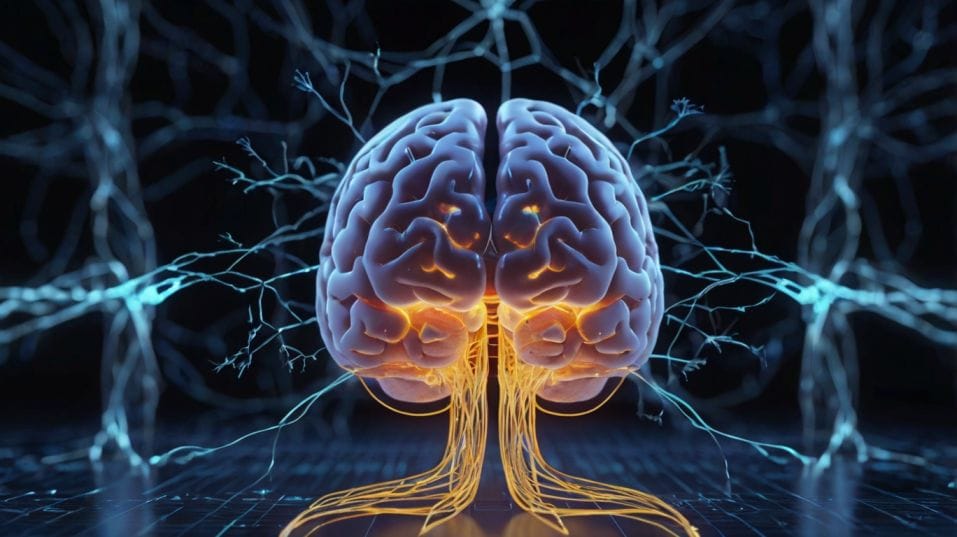How Mindfulness Boosts Work Efficiency (Backed by Science)
Learn how mindfulness improves work efficiency by enhancing focus, reducing stress, and promoting better decision-making, backed by science.

Can mindfulness make you a sharper, more effective professional? Research says yes. By training the brain to focus deeply, mindfulness enhances cognitive function, lowers stress, and boosts decision-making.
Instead of working harder, professionals can work smarter—getting more done with less mental strain. Beyond productivity, mindfulness cultivates resilience, adaptability, and emotional intelligence, essential for long-term career success.
Why Mindfulness Elevates Work Performance
In a fast-paced work environment, efficiency isn’t just about effort—it’s about how well you manage your attention and energy.
Mindfulness enhances mental clarity, emotional stability, and decision-making, all of which contribute to higher performance.
One of its most immediate benefits is improving focus, helping professionals cut through distractions and stay engaged in their work.
Sharper Focus, Fewer Distractions
Interruptions derail productivity, forcing the brain to repeatedly shift gears, which consumes energy and lowers efficiency. Mindfulness trains attention, reducing mind-wandering and enhancing working memory.
With a stronger ability to focus, professionals complete tasks more accurately and efficiently while avoiding the cognitive drain of constant task-switching.
Chronic distraction weakens cognitive control, making it harder to filter out irrelevant stimuli.
Regular mindfulness practice fortifies the brain's executive functions, allowing professionals to stay engaged in their work rather than succumbing to digital overload or environmental disruptions.
This sustained attention leads to higher-quality work with fewer errors.

Stress Reduction That Sustains Energy
Workplace pressure drains mental reserves, leading to fatigue and decreased motivation. Mindfulness helps lower cortisol levels, stabilize emotions, and prevent burnout by rewiring stress responses.
Instead of reacting impulsively to stressors, mindful professionals cultivate a calm, centered mindset that sustains steady energy levels throughout the day, eliminating midday crashes and decision fatigue.
Studies show that mindfulness strengthens the parasympathetic nervous system, promoting a state of relaxation that counteracts the high-alert response triggered by work stress.
This means fewer anxiety-driven decisions, improved emotional regulation, and greater resilience when facing deadlines or workplace challenges.
Professionals who practice mindfulness report feeling more energized, focused, and emotionally balanced, making them more effective in high-pressure environments.
Smarter, More Strategic Decision-Making
Rushed choices often lead to mistakes and inefficiencies. Mindfulness strengthens the prefrontal cortex, the area of the brain responsible for logical thinking, impulse control, and problem-solving.
This enables professionals to approach decisions with greater clarity, reducing emotional reactivity and impulsivity.
Do you ever feel like your workday is a blur of distractions and stress? Instead of grinding harder, what if you could train your brain to work smarter? Mindfulness isn’t just about relaxation—it’s a proven tool for enhancing focus, decision-making, and resilience.
By practicing present-moment awareness, professionals can sharpen their cognitive skills, reduce stress, and sustain high performance without burning out.
The secret to greater efficiency isn’t doing more—it’s mastering attention and energy.
Practical Mindfulness Strategies for Efficiency
Knowing the benefits of mindfulness is one thing—applying it to your workday is another. Small, intentional practices can help you stay focused, reduce stress, and maximize efficiency without overhauling your routine. One of the simplest yet most effective ways to set the tone for a productive day starts with your breath.
Start the Day with Focused Breathing
Before checking emails or diving into tasks, take a few minutes to practice controlled breathing. Techniques like 4-7-8 breathing or deep belly breaths center the mind, priming it for optimal performance.
This simple habit sets the tone for the rest of the day, reducing stress and sharpening concentration.
Incorporating mindful breathing into a morning routine also enhances mental clarity, helping professionals transition smoothly into their workday without feeling overwhelmed by looming tasks.
A calm, focused start leads to a more productive and balanced workflow.
Master the Art of Single-Tasking
Multitasking cuts productivity by nearly half. Instead, block time for deep work, silence notifications, and fully engage with one task at a time. This approach accelerates output and improves accuracy while reducing cognitive fatigue.
Single-tasking strengthens neural pathways associated with sustained attention, making it easier to concentrate for longer periods without succumbing to distractions.
It also enhances creativity by allowing the brain to engage deeply with complex problems, leading to more innovative solutions.
Reset with Mindful Micro-Breaks
Every 60-90 minutes, step away for a mental reset. Stretch, take deep breaths, or walk outside for fresh air. These short breaks sustain focus and prevent mental fatigue, keeping performance sharp.
Mindful breaks allow the brain to process information more effectively, improving long-term retention and reducing the risk of burnout.
Engaging in mindful movement, such as stretching or walking meditation, during breaks can further enhance cognitive function and refresh mental energy.
Research suggests that even brief moments of mindfulness can reset attention and restore motivation, making micro-breaks a powerful tool for sustained efficiency.
Communicate with Full Presence
Mindful listening streamlines collaboration. Give colleagues undivided attention, pause before responding, and use clear, intentional language. Fewer misunderstandings mean fewer corrections and wasted time.
Mindfulness enhances emotional intelligence, making it easier to navigate workplace dynamics with empathy and patience.
By actively listening and responding with awareness, professionals build stronger relationships, foster trust, and create a more harmonious work environment.
Long-Term Benefits of Mindfulness at Work
Mindfulness isn’t just a short-term productivity boost—it creates lasting changes in how professionals handle challenges, make decisions, and collaborate.
Over time, regular practice strengthens mental resilience, helping individuals navigate workplace demands with greater ease and adaptability.
One of the most valuable long-term advantages is developing cognitive resilience, the ability to stay sharp and composed under pressure.
Cognitive Resilience That Adapts to Pressure
A trained mind weathers workplace challenges with ease. Mindfulness enhances neuroplasticity, allowing professionals to navigate complexity with agility and endurance.
This mental adaptability is crucial for problem-solving, innovation, and maintaining peak performance under pressure.
Regular mindfulness practice also strengthens the brain's ability to regulate emotions, preventing stress from undermining cognitive function.
Over time, professionals develop a heightened capacity for critical thinking and creative problem-solving, making them more adept at handling high-stakes situations.
Emotional Intelligence That Strengthens Teams
By fostering self-awareness and patience, mindfulness reduces workplace conflict and enhances collaboration. Teams function more smoothly, achieving goals with less friction.
Mindful leadership promotes a culture of psychological safety, where employees feel valued, heard, and motivated to contribute their best work.
Incorporating mindfulness into team meetings and project discussions encourages open, thoughtful communication.
Professionals who practice mindful interaction are more likely to approach disagreements constructively, leading to innovative solutions and stronger workplace relationships.
Sustainable Productivity Without Burnout
Consistent mindfulness prevents exhaustion, ensuring steady, high-quality output. Professionals maintain efficiency without sacrificing well-being, leading to long-term career success.
Unlike productivity hacks that offer short-term gains, mindfulness provides sustainable strategies for maintaining focus, creativity, and resilience over time.
Organizations that implement mindfulness programs report higher employee satisfaction, lower turnover rates, and improved overall workplace morale.
By embedding mindfulness into daily routines, professionals cultivate a work environment that prioritizes well-being while maximizing efficiency.
Final Thoughts: Start Now
Efficiency isn’t about working longer—it’s about working smarter. Integrate small mindfulness practices into your day and watch focus, clarity, and productivity soar.
The best time to start? Right now. Begin with a simple breath, a moment of full attention, or a mindful pause before a big decision. Over time, these small shifts create lasting transformations in how you work and lead.




